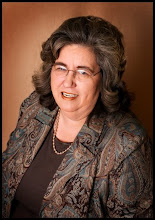You may have noticed I haven’t written much since starting this blog. To be honest, I am struggling a bit trying to decide what to put on this blog and what to put on
Parenting a Complex Special Needs Child. My big thing has always been preparing for adulthood and I have written about it extensively. However, sometimes you have to start where you are. Thus, today’s blog.
As parents we expect to around to be a support when our adult children go into an apartment or program. We may not be able to do that. I have a whole chapter on estate planning in
my book because I often became guardian or trustee after the parent had died or became too ill to advise in the care and planning for their adult child. I created a form for medical and development history, visuals and documents about the routine and care required for my son so they are available to someone in the event I am no longer able to communicate his needs to the appropriate person.
However, last summer I had the privilege of sitting in several of Dr. David Pitonyak’s sessions at a conference where I was speaking. It gave me real pause to take another look at planning. Dr. Pitonyak kindly puts the
handouts for his various presentations on his website. You will find them great reading.
One of the things that hit me hardest was Dr. Pitonyak’s statement “Imagine if the only relationships you had were people who were paid to be with you?”
I don’t mean to imply that every family who has a member with disabilities is isolated; however, many are. Some marriages become real teams and others fall apart when confronted with parenting a child with special needs. Long-term friendships are hard to maintain with the responsibilities we carry. Depending on your child’s situation it may seem overwhelming to go out in the community so isolation becomes the norm.
If your adult child is in a group home or some kind of facility it would be easy to say he or she has plenty of friendships among staff or fellow residents. In
The Importance of Belonging, Dr. Pitonyak says: “Although paid staff can be friendly and supportive, they frequently change jobs or take on new responsibilities. The resulting instability can be devastating to someone who is fundamentally alone.”
Fellow residents may also be short-term or your adult child may be moved to another placement. These relationships are not necessarily enduring.
Friendships for your child or adult child can be established in much the same way you develop friendships. You meet someone with similar interests or background. If he or she loves to bowl spend time at the bowling alley. Other people there doing what they love get used to see you and your child there. Comfort level usually increases and sometimes relationships ensue. Whatever he likes to do spend time in a regular setting that enables him to do what he loves and to meet others with that same interest.
Some relationships may come from within one’s family. An example for Billy Ray is one of his “neeses” (nieces). He has good relationships with many of his step-nieces and nephews. One is especially close – if I am talking to this step-granddaughter on the phone and she hears Billy Ray in the background she will say “is that Uncle Billy Ray? Let me talk to him, it will help.” It does help calm him to talk to her in person or on the phone. I have noticed that he interacts with her more than with most people. You can tell he makes an effort to do that because she is important to him.

I was reminded of the importance of common ground in relationships recently when we spent a weekend visiting at my brother and sister-in-law’s house. My brother remarried a few years ago but we haven’t had a lot of opportunity to get to know his wife, Meri. She is a social worker so responses to Billy Ray were probably more natural than they might be for some. However, besides being very good with my son, they clearly shared a mutual interest in dogs. The picture shows Meri sharing her dog with Billy Ray.
Dr. Pitonyak also talks about the importance of having someone who holds a person’s “story”. I plan to write on that in another post. However, I wanted to say that having relationships that endure after parent(s) are no longer available, especially if that person understands what life was with parents and really knows a person is vital to their security and happiness.
Until next time,
Peggy Lou Morgan
Blogs:
Amazon Author Connect,
Parenting A Complex Special Needs Child and
Lighthouse Parents Websites:
Parenting Your Complex Child,
Lighthouse Parents and
Peggy Lou Morgan.comClub Mom Articles Parenting Your Complex Child Yahoo Group






